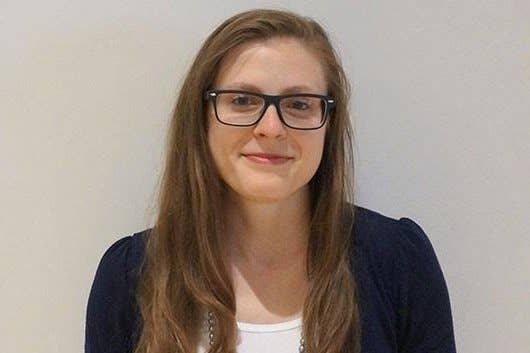Indies don't need AAA budgets for effective marketing
Execution Labs community developer Astrid Rosemarin shares tips for how small studios can build buzz without breaking the bank
When it comes to marketing, small studios and giant publishers are not competing on an even playing field. As a community developer with Montreal-based accelerator Execution Labs, Astrid Rosemarin is well aware that the teams she helps get traction are working at a disadvantage.
"An independent developer that releases a PvP fighting game or shooter is still being compared to League of Legends or DOTA or Street Fighter or what have you," Rosemarin told GamesIndustry.biz. "If you're trying to compete in a genre, you're still going up against the AA and AAA studios with a bigger budget. It's pretty much the same with marketing. A consumer only has so much time to look at content on the internet, so at the end of the day, it's all kind of equal in a way."
Rosemarin will be holding a session on "Communities in the Mist, and Other Advanced Guerrilla Marketing Techniques" at next week's Montreal International Game Summit, but she shared a few tips in advance that might help smaller teams make the most of their limited marketing bandwidth and budget. Bigger companies might have more money to throw at marketing, but small studios still have a handful of advantages in the fight for attention.
"[W]e're all relatively small studios, so the narrative around the game development cycle is about the studio itself and the team."
The most basic advantage to being small is that independent developers have the freedom and ability to think outside the box when designing their games, Rosemarin said. As much as that might seem self-evident, the same advantage can extend to the marketing campaigns. Rosemarin said small developers are allowed to consider interesting marketing tactics that might be too unorthodox or not broadly impactful enough for the megapublishers of the world.
For example, Rosemarin said one of the teams from Execution Labs has been working with a psychoanalyst on the game design side because the project involves mental health and they wanted to do the subject justice. Beyond making the game's depiction of mental health that much more realistic and respectful, the psychoanalyst has also agreed to reach out to communities beyond the standard gaming market to get the word out in circles where games simply aren't often relevant.
There's another benefit to being small, and that's the benefit of the doubt if they should ever make a misstep with their fanbase, whether it be (and these examples are ours, not Rosemarin's) the fan furor against BioWare over the Mass Effect 3 ending or blowback to Overkill changing Payday 2's business model.
"The bigger studios just have more resources at their disposal," Rosemarin said. "So when they do something crazy and miscommunicate with their community, I do think it's crazy because they have so much talent on staff and money to throw in their direction to put together a really solid plan and interesting marketing tactics that those of us with smaller budgets just don't have the resources to achieve."
She added, "Luckily for me and the community of developers I work with, we're all relatively small studios, so the narrative around the game development cycle is about the studio itself and the team. And the teams are usually quite small, so they can tell this bigger story throughout development of, 'We're a small team making this game and we're super-passionate. And the reason we're sharing this content online is not just to market the game. It's because we're super excited to be making this game so we're sharing it with you before it's even ready.' It's harder for [a huge studio] to do that because they have all sorts of meetings, rules, and red tape, and a whole marketing department to go through."
One of the key points of focus for Rosemarin is quality of outreach over quantity. She wants to see every developer fostering an online presence, networking within their local game development scenes, and doing what they can to get the word out, but in the earliest stages of the company, it's mostly about building a passionate core from which the fan community can grow.
"I would rather see one of my studios identify five really amazing followers that can really get their teeth into the game and get a feel for it than 100,000 random potential fans that you have no idea who they are."
"I would rather see one of my studios identify five really amazing followers that can really get their teeth into the game and get a feel for it than 100,000 random potential fans that you have no idea who they are," Rosemarin said.
And even though the new wave in game marketing has been focused on YouTube and Twitch streaming, Rosemarin said it's important for small developers not to think about opportunities to get the word out that aren't already overrun by the big players.
"What I encourage with the studios we work with at Execution Labs is not to follow trends, but to identify the best way of reaching your potential audience," Rosemarin said. "So if you have a very beautiful, photo-friendly game where every screenshot looks artistic and different, maybe Pinterest would be a good social network for you to be on... I think the base trend is to do whatever works best for your game rather than focus on gamer communities. Instead of focusing on quote-unquote gamers, focus on interests and large-scale places where you can access people who have similar interests that your game covers."
She also noted that some of the best marketing solutions were never actually intended as such.
"I think Kickstarter is more a community initiative than a fundraising initiative now," Rosemarin said. "Not everyone agrees with me on that, but I think it's not the best place to do fundraising of any sort for video game studios, unless you're super-famous. [The money] is a nice cherry on top, but that money is not enough to make your game."
Rosemarin will give her talk at MIGS 2015 Monday, November 16 at 3 p.m.
Full disclosure: MIGS has a media partnership with GamesIndustry.biz, and will be paying for our travel and accommodation during the event.









